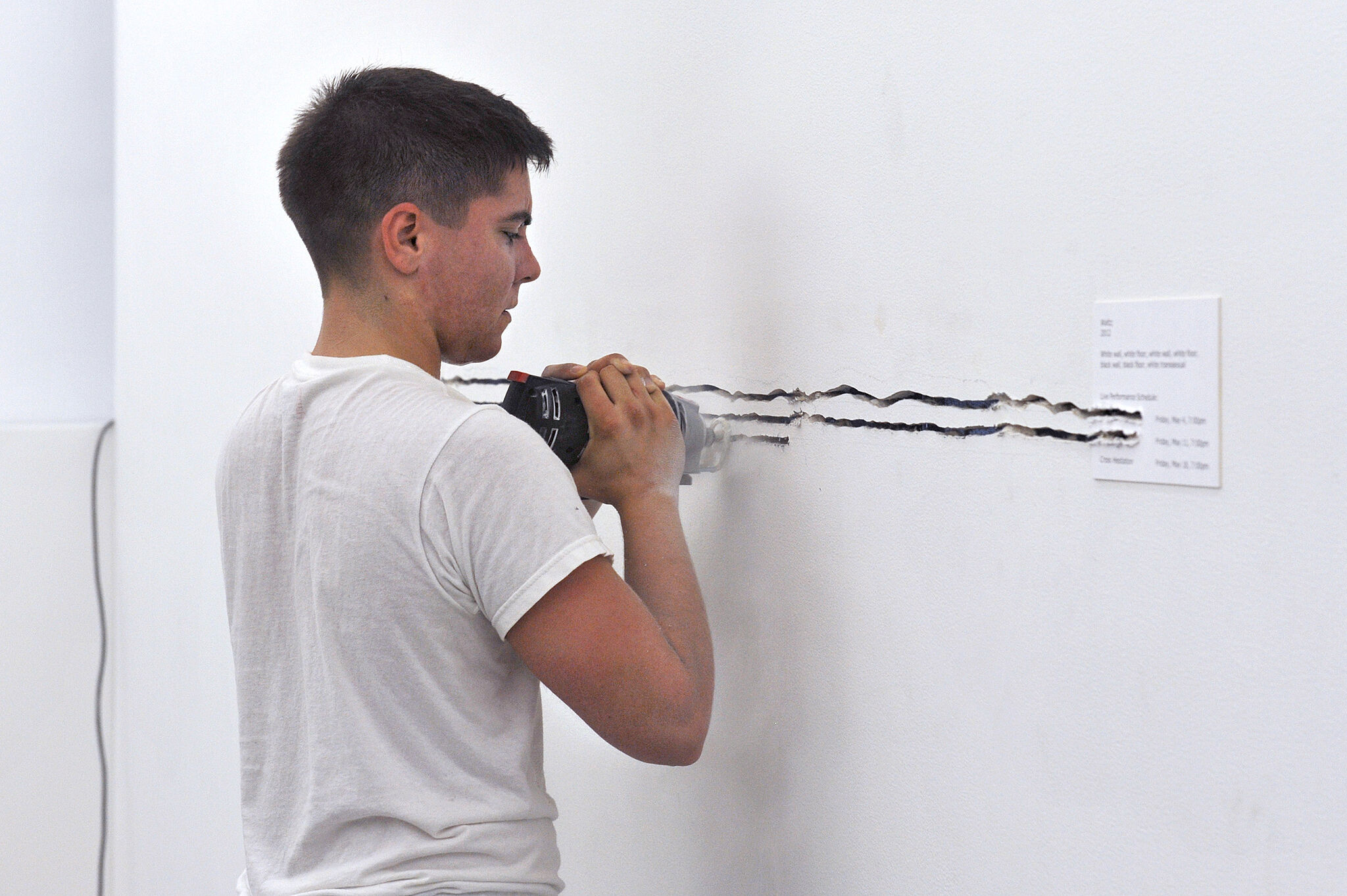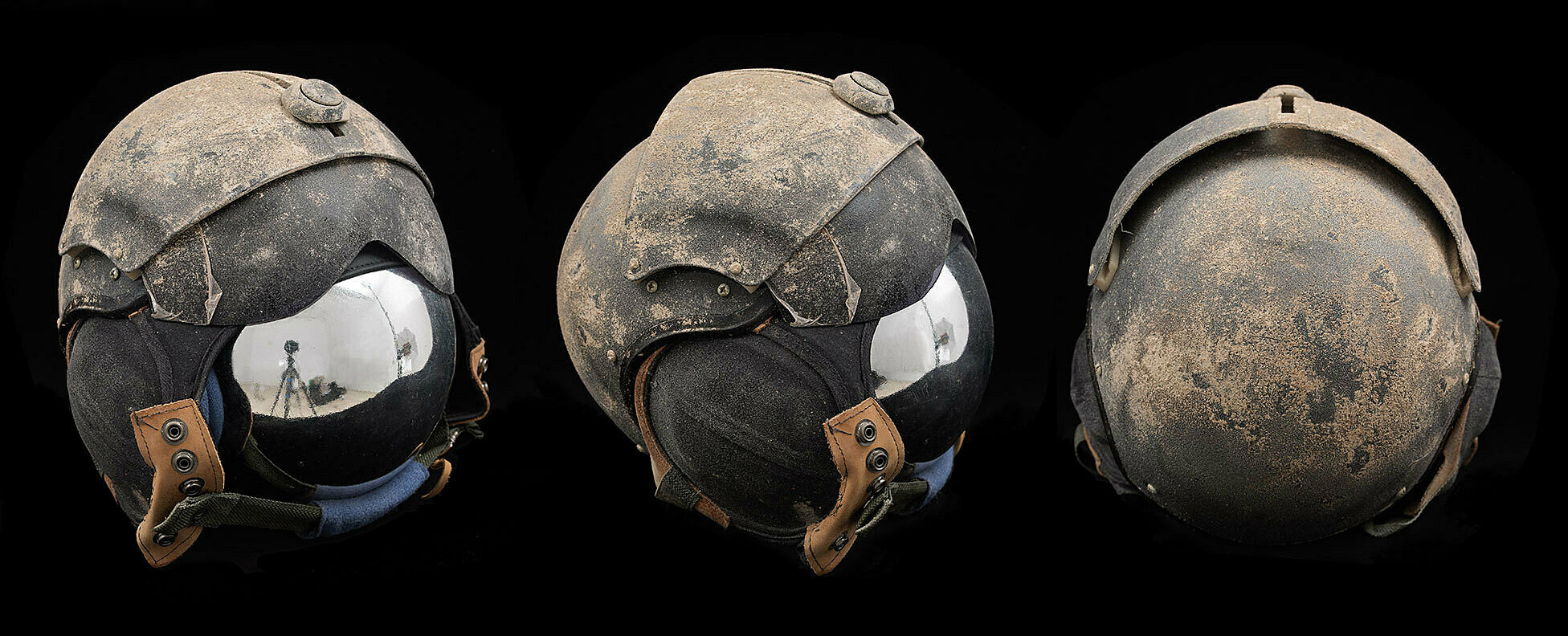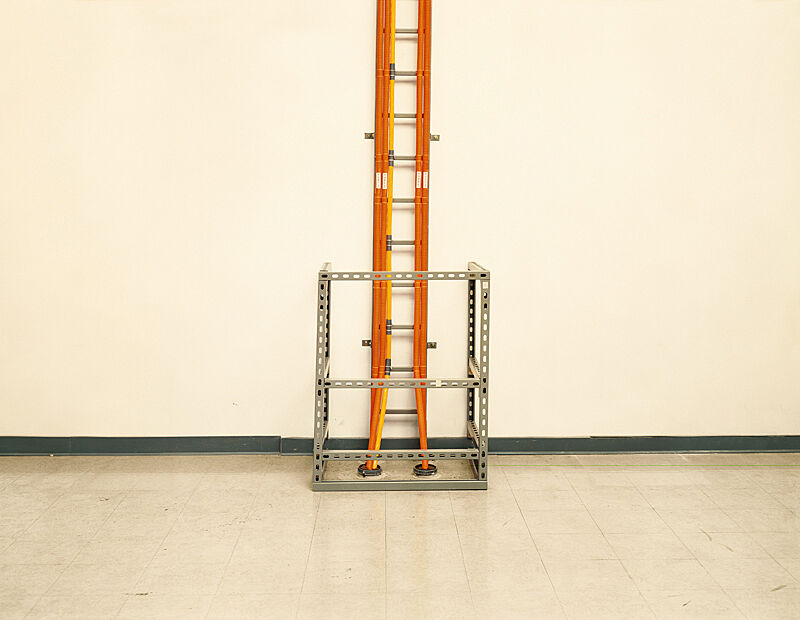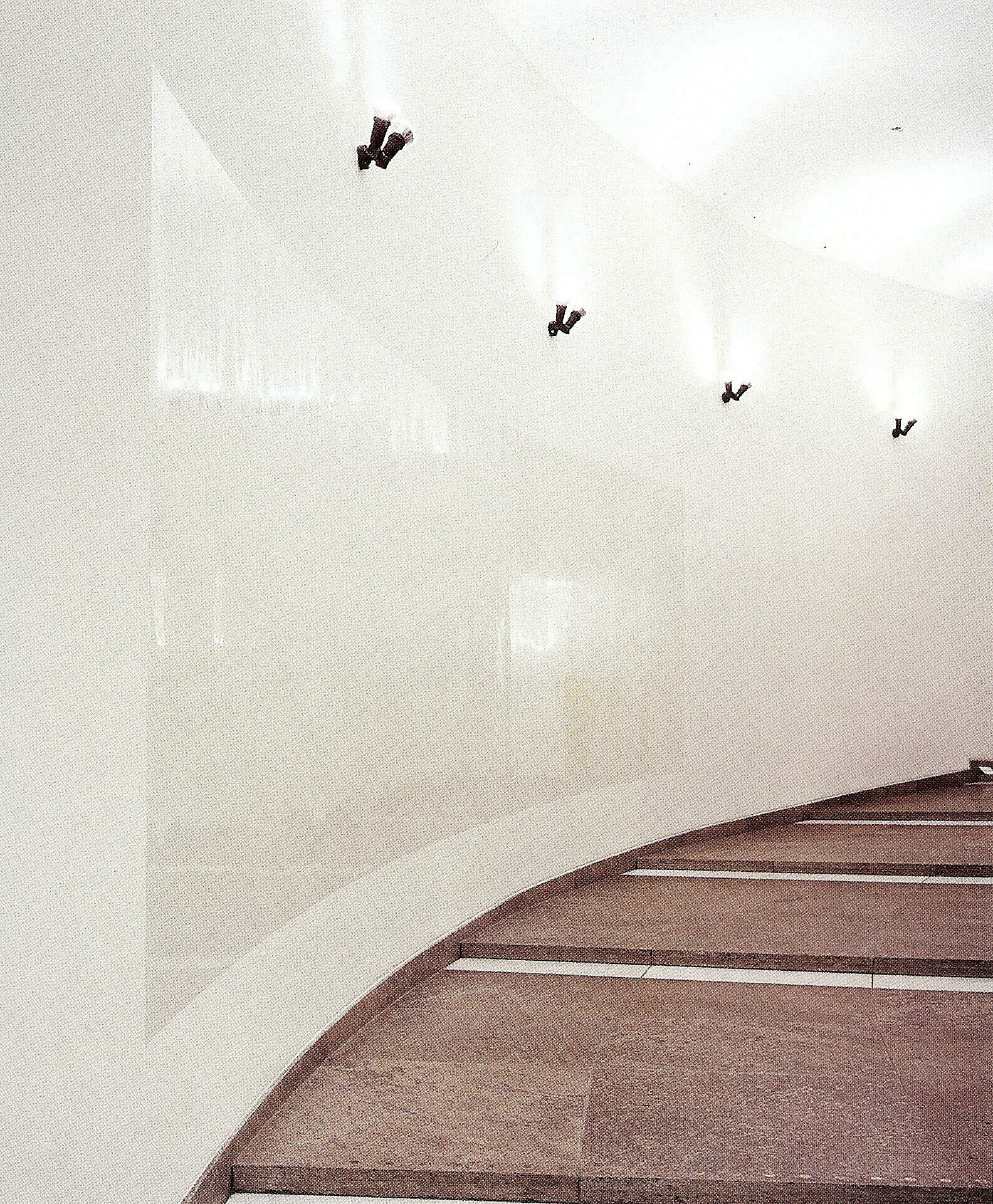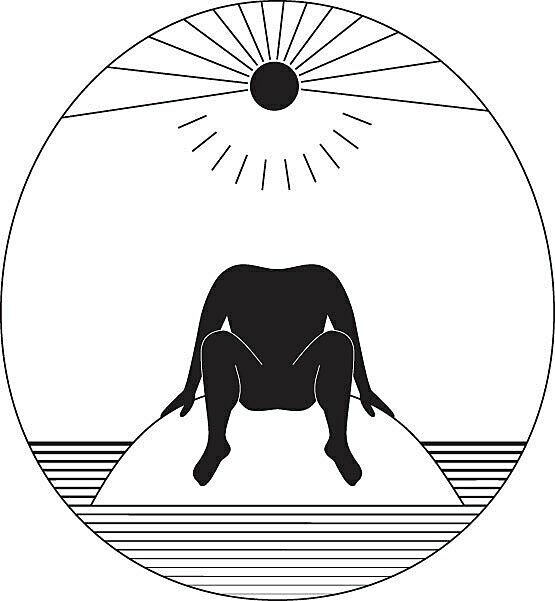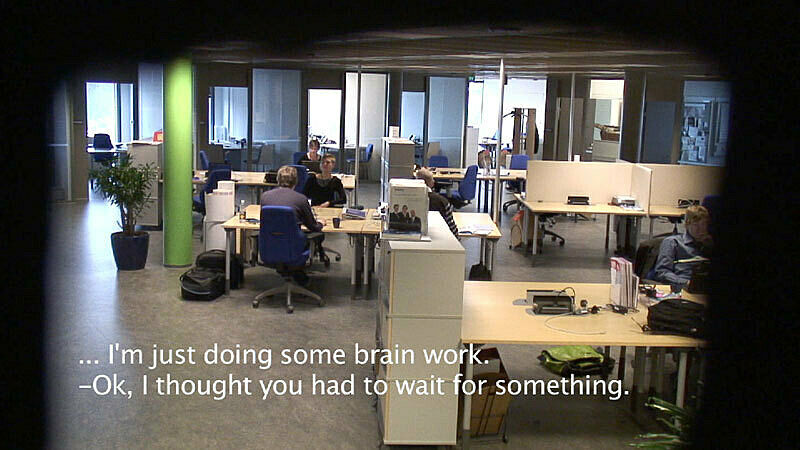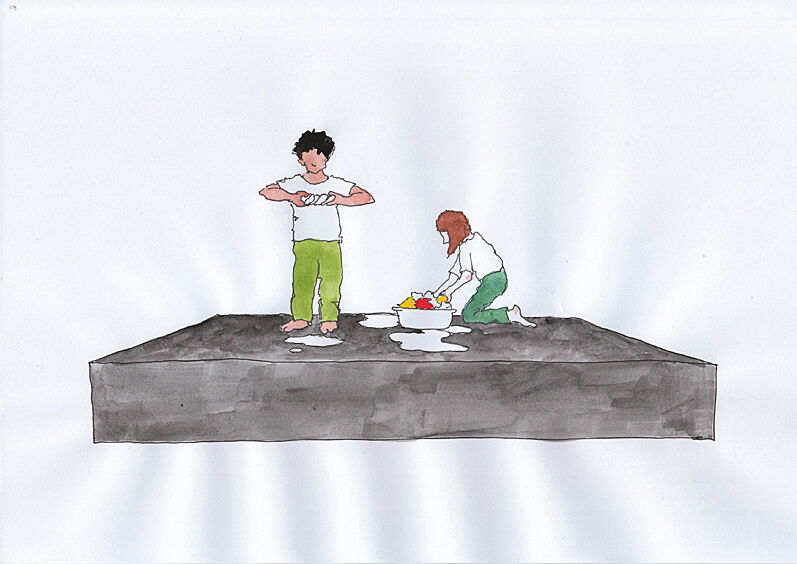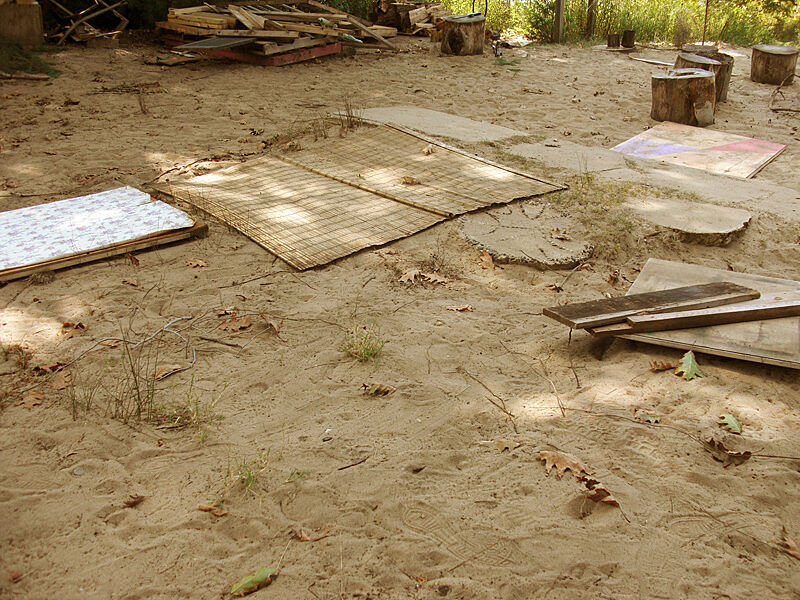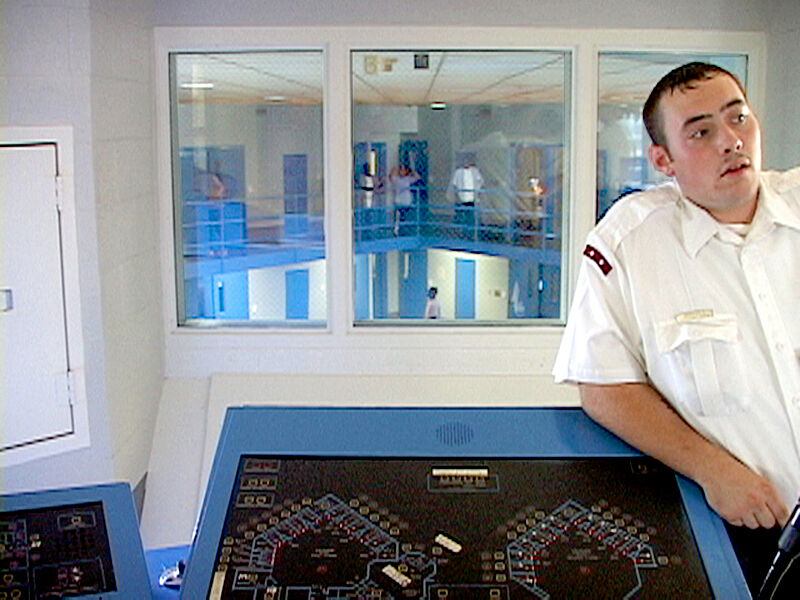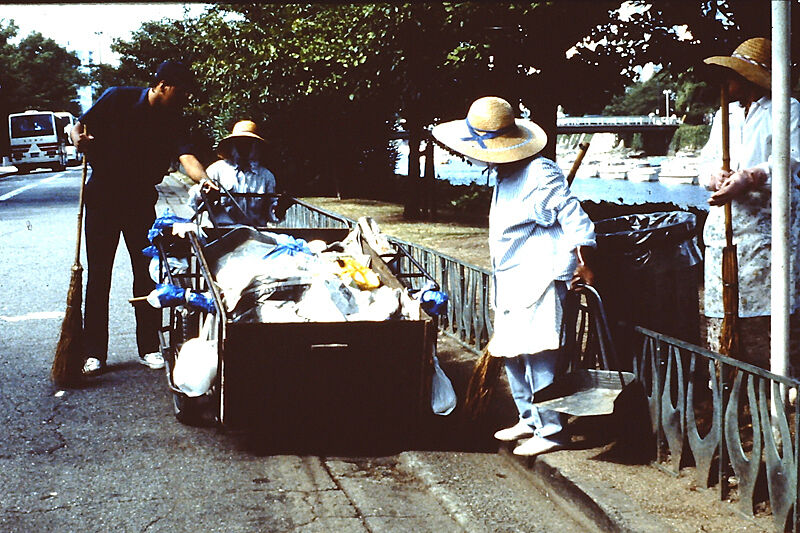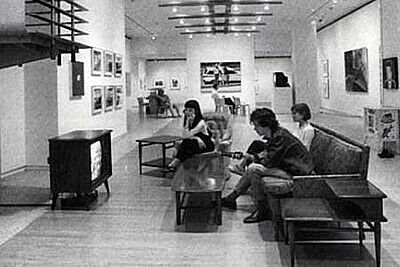Maintenance Required
May 30–June 22, 2013
The Kitchen, 512 W 19th Street
Maintenance is crucial for the continuation of our physical infrastructure, our society, and our lives. The often repetitive and mundane work of maintenance sustains people, objects, and institutions, and supports our constant struggle against entropy and decay. Ubiquitous but unseen and undervalued, maintenance comprises the essential systems of support that clear the ground for all other forms of work.
Investigating the diversity of maintenance tasks, Maintenance Required examines the large-scale systems that construct our daily lives. Durational by nature, maintenance networks provide life-perpetuating mechanisms of care; yet these systems can also invisibly direct or limit life’s possibilities, or even become malevolent systems of control. By overcoming our collective blindness toward maintenance activities, we can begin to examine how they condition our lives. Bringing maintenance into view exposes a constantly shifting set of social, political, and affective relations and invites questions about what needs to be maintained and under what conditions that maintenance occurs.
The exhibition takes as its entry point to these issues Mierle Laderman Ukeles’s “Manifesto for Maintenance Art 1969!", in which the artist redefines maintenance activities as art.Maintenance Required then focuses on artistic practices that frame and critically engage these often invisible systems of life support. Many of these practices articulate the paradoxical tensions of large-scale systems of maintenance whose power to sustain life may run parallel to the power to constrain it.
The exhibition features works by Michael Bramwell, Goldin+Senneby, Ashley Hunt, Masaru Iwai, Yve Laris Cohen, Sam Lewitt, Park McArthur, Salvage Art Institute, Karin Sander, Taryn Simon, Pilvi Takala, and Mierle Laderman Ukeles.
Maintenance Required is curated by Nina Horisaki-Christens, Andrea Neustein, Victoria Rogers, and Jason Waite, the 2012–13 Helena Rubinstein Curatorial Fellows of the Independent Study Program.
Maintenance is crucial for the continuation of our physical infrastructure, our society, and our lives. The often repetitive and mundane work of maintenance sustains people, objects, and institutions, and supports our constant struggle against entropy and decay. Ubiquitous but unseen and undervalued, maintenance comprises the essential systems of support that clear the ground for all other forms of work.
Investigating the diversity of maintenance tasks, Maintenance Required examines the large-scale systems that construct our daily lives. Durational by nature, maintenance networks provide life-perpetuating mechanisms of care; yet these systems can also invisibly direct or limit life’s possibilities, or even become malevolent systems of control. By overcoming our collective blindness toward maintenance activities, we can begin to examine how they condition our lives. Bringing maintenance into view exposes a constantly shifting set of social, political, and affective relations and invites questions about what needs to be maintained and under what conditions that maintenance occurs.
The exhibition takes as its entry point to these issues Mierle Laderman Ukeles’s “Manifesto for Maintenance Art 1969!", in which the artist redefines maintenance activities as art.Maintenance Required then focuses on artistic practices that frame and critically engage these often invisible systems of life support. Many of these practices articulate the paradoxical tensions of large-scale systems of maintenance whose power to sustain life may run parallel to the power to constrain it.
The exhibition features works by Michael Bramwell, Goldin+Senneby, Ashley Hunt, Masaru Iwai, Yve Laris Cohen, Sam Lewitt, Park McArthur, Salvage Art Institute, Karin Sander, Taryn Simon, Pilvi Takala, and Mierle Laderman Ukeles.
Maintenance Required is curated by Nina Horisaki-Christens, Andrea Neustein, Victoria Rogers, and Jason Waite, the 2012–13 Helena Rubinstein Curatorial Fellows of the Independent Study Program.
About the Whitney ISP Curatorial Program
The ISP provides a setting within which students pursuing art practice, curatorial work, art historical scholarship, and critical writing engage in ongoing discussions and debates that examine the historical, social, and intellectual conditions of artistic production.
Please Note
Maintenance Required takes place at The Kitchen (not the Whitney Museum of American Art) and its hours are: Tuesday–Friday, 12–6 pm; Saturday, 11–6 pm. All events held in conjunction with Maintenance Required will take place at The Kitchen. For more information about the specific hours for each event, please consult the calendar.
This exhibition is free and open to the public.
Support for the Independent Study Program is provided by Margaret Morgan and Wesley Phoa, The Capital Group Charitable Foundation, and the Whitney Contemporaries through their annual Art Party benefit.
Endowment support is provided by Joanne Leonhardt Cassullo, the Dorothea L. Leonhardt Fund of the Communities Foundation of Texas, the Dorothea L. Leonhardt Foundation, and the Helena Rubinstein Foundation.

